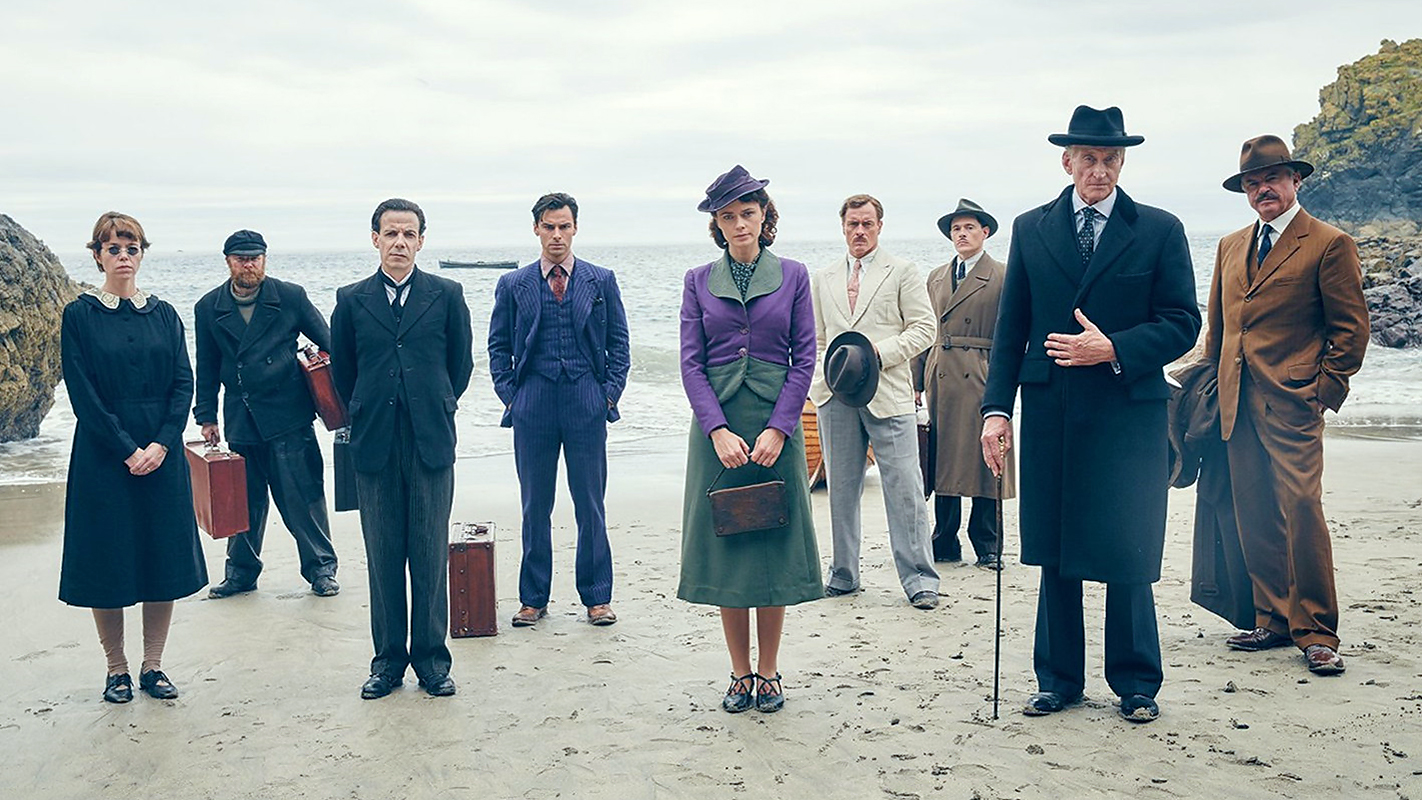

- #BBC AND THEN THERE WERE NONE LICENSE#
- #BBC AND THEN THERE WERE NONE SERIES#
- #BBC AND THEN THERE WERE NONE TV#
But moments later, one of the guests is actually dead seemingly by poison and overnight, there’s a second fatality which quickly rules out any suggestion of suicide. With the exception of Lombard everyone denies the charges levied against them by the voice, which is soon tracked down to a gramophone record unwittingly started by Rogers in accordance with instructions from the conspicuously absent Owens.
#BBC AND THEN THERE WERE NONE LICENSE#
The Rogers are said to have murdered a former employer to get hold of a large bequest a child in Claythorne’s care drowned because of her negligence Anthony Marston (Douglas Booth) killed two children through reckless driving and merely bemoans the inconvenience of a six month suspended license as a result Justice Lawrence Wargrave (Charles Dance) is accused of knowingly sending an innocent man to the gallows ex-policeman William Blore (Burn Gorman) beat a prisoner to death in a police cell General John MacArthur (Sam Neill) shot his wife’s lover in the trenches in World War 1 Miss Emily Brent’s (Miranda Richardson) religious zealotry led her to fire her pregnant maid who then subsequently took her own life in despair Dr Edward Armstrong (Toby Stephens) was drunk when he operated on and killed a patient and soldier-of-fortune Philip Lombard (Aidan Turner) is accused of causing the deaths of 21 men during a regional conflict in Africa. It’s soon clear that the invitations made to each of the guests were a deception of one sort or another and that no one knows anyone else, and moreover no one has ever met the Owens – not even the newly-engaged servants Thomas and Ethel Rogers (Noah Taylor and Anna Maxwell Martin) or Mrs Owen’s just-hired secretary Vera Claythorne (Maeve Dermody).Īfter dinner, a voice booms out throughout the house accusing each of the ten people present of crimes of murder. In summary, the story begins with the arrival of eight strangers at a grand house on the remote Solder’s Island off the Devon coast at the invitation of the owners, Mr and Mrs UN Owen.
#BBC AND THEN THERE WERE NONE SERIES#
John Carpenter’s The Thing, Quentin Tarantino’s The Hateful Eight, a feature-length pastiche episode of Family Guy and the entire series of Harper’s Island to name but a few.
#BBC AND THEN THERE WERE NONE TV#
Even if these are unfamiliar to you, the basic central conceit surely still will be thanks to having been repurposed by dozens of films and TV shows including John Cusack’s Identity. There’s also been an Indian version called Gumnaam and a Soviet production entitled Desyat Negrityat which I have to confess that I haven’t seen.

At the time I read the book and the stageplay (which are different in crucial aspects, as we’ll return to later) and I have seen multiple screen versions of it over the years: the 1945 Twentieth Century Fox film directed by René Clair starring Barry Fitzgerald and Walter Huston, still very much the go-to definitive classic the groovy 60s-inflected UK remake starring Shirley Eaton, Fabian, Stanley Holloway and Wilfrid Hyde-White and a bizarre 1974 Europudding effort set in pre-revolutionary Iran starring Richard Attenborough, Oliver Reed and Charles Aznavour. I’ve known the story of And Then There Were None since my high school put on a production of it when I was 12. The book is a favourite of mine and is in fact the best-selling murder mystery of all time around the world, so you’ll forgive me if I’m henceforth hyper-sensitive about any disrespectful failings that I might find here. It was therefore with some trepidation that I worried about what the BBC would do with its 2015 take on And Then There Were None, commissioned as part of global celebrations for the 125th anniversary of the Queen of Crime’s birth. Instead, recent productions have tended to send up and spoof Christie’s canon (the early series of ITV’s Agatha Christie’s Marple was particularly bad in that respect) or make the stories outright comedies (the woeful Partners in Crime for example.) Even the widely regarded, long-running series of generally excellent David Suchet Hercules Poirot dramas lost faith and started extensively rewriting and reimagining the stories toward the end, usually only managing to demonstrate a complete lack of understanding about what they were dealing with in the process. One of the most aggravating things about recent screen adaptations of Agatha Christie’s novels is that today’s generation of network executives seem to regard the source material as too old hat to trust on its own anymore. Posted on DecemUpdated on January 9, 2016Ĭontains some mild spoilers for episode 1, but not whodunnit…

And Then There Were None E1 (BBC One) (2015)


 0 kommentar(er)
0 kommentar(er)
